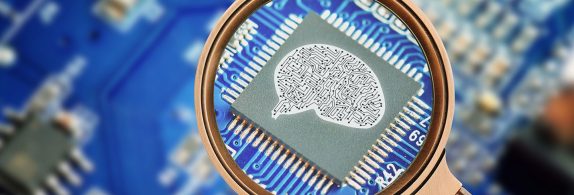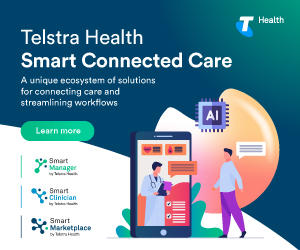4 ways AI is transforming healthcare
Artificial intelligence (AI) is gaining significant momentum in healthcare and is forecast to have the potential to significantly transform the industry, as well as the way practitioners interact with their patients.
A PWC report released earlier this year, has already revealed how AI is already being leveraged by back offices and supply chains, generating quiet efficiencies. Meanwhile a McKinsey report released in February this year found AI and robotics present huge opportunities for both the pharma and healthcare industries. The report found big data strategies could save the US healthcare system alone, up to $100 billion a year thanks to AI-assisted efficiencies in trials, research, and clinical practice.
So let’s take a quick look at how AI can transform healthcare and improve efficiency, accuracy and better patient outcomes.
1. Streamlining medical processes
One of the ways AI and deep learning is already being used in healthcare is image classification, which enables extracting information from multiple images to help healthcare providers like radiologists mark file and mark low priority X-rays, making the process quicker, easier and more accurate. Meanwhile in the UK, researchers at Oxford Hospital are using this technology to help improve diagnosis for heart disease and lung cancer. AI can also help primary doctors fund and refer patients to specialists faster, and offer more fast, accurate and actionable insights for doctors and their patients.
However it’s important to note this doesn’t make humans redundant, in fact, it frees up healthcare professionals’ time to do less mundane tasks and focus on more personalised patient care. According to the PWC report, healthcare providers can leverage AI tools to help their staff analyse routine pathology or radiology results more quickly and accurately, allowing them to see more patients and realize greater revenues.
2. Detecting serious health conditions
Leveraging data and insights from ‘wellness wearables’ can also aid diagnosis and treatment in healthcare. In fact, a recent study revealed wearable devices like Apple Watch and FitBit are already able to gather sophisticate data to enable serious detection of health conditions such as hypertension and sleep apnea.
“Our deep neural network (DNN) demonstrates surprisingly good prediction of hypertension and sleep apnea given that its only inputs are heart rate and step count,” the report stated. “Whether such DNNs can provide durable and portable predictions for these conditions in other study samples is worth pursuing.”
3. Streamlining mundane tasks
More health businesses around the world are now leveraging the power of AI to automate decision-making, create financial and administrative efficiencies, automate parts of their supply chains, or streamline regulatory compliance functions.
According to the PWC report released earlier this year, repetitive tasks in particular may benefit from the introduction of AI and machine learning to replace or supplement human interaction, the report found. AI doesn’t forget, tire, get bored with tasks or develop carpal tunnel syndrome.
4. Implications for pharmacy, research and innovation
Implications of AI also extends to the pharmaceutical, drug and medical R&D sectors. The recent McKinsey report estimated that applying big-data strategies to better inform decision making could generate up to $100 billion in value annually across the US health-care system alone, by optimising innovation, improving the efficiency of research and clinical trials, and building new tools for physicians, consumers, insurers, and regulators to meet the promise of more individualised approaches.
For instance in the pharmaceutical industry, a company could use AI to automate the intake, analysis, follow-up and reporting of adverse event reports associated with their drugs. And while the R&D process for new drugs can be slow and expensive, AI tools can help better identify which compounds are likely to succeed based on early-stage clinical data.









